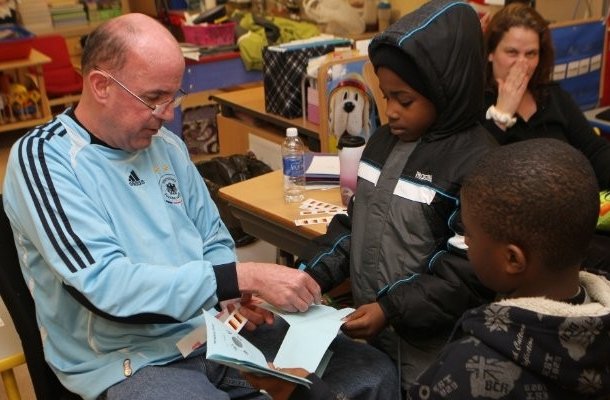Back when I graduated from college, I selfishly and naively thought that every job other than a well-paying engineering job was below me.
It took four painful, humbling, but growing years in the middle of a deep recession to shatter this self-centered paradigm and see every experience as an important part of my development as a person. In his book, Quitter, author Jon Acuff refers to such experiences as parallels: opportunities to ask “how can this job/experience impact my dream?“
Below are some of these roles, activities, and jobs that I wish that every influencer out there could experience at least once and the lifelong lessons that can be learned and applied to one’s current leadership role or one’s future dream.
Teaching Kids (who are not your own)
No matter how well-versed you are in your product or how knowledgeable you are in an industry, if you can’t convey your thoughts in a way that doesn’t go over everyone’s heads, you’re already destined to fail. I’m a firm believer that if you can effectively teach kids, you can teach anyone.
Children are one of the best learning tools when it comes to communication. Their supple minds often lack the knowledge and preconceptions that can make public speaking a daunting task, but force you to think through a different lens. A smile, intent gaze, or laugh is a commonly present sign that you’ve successfully gained their attention and are speaking on their level. And if your experience working with kids is anything like mine, kids don’t lack inhibition and will hold nothing back in terms of feedback; they’ll let you know if you’re boring them to death!
I’ve had the opportunity to teach kids on a variety of topics from science to civics to Bible lessons. These kids came from a variety of backgrounds: from the children of foster parents in Richmond, California’s “Iron Triangle” to the kids of Silicon Valley entrepreneurs. Each experience has challenged my way of thinking and speaking, but each experience has also increased my confidence for speaking to groups of older people.
Working Retail
Before I landed a job at St. Jude Medical, I had the opportunity to work for the Apple Store for just short of two years. Besides the fact that I got to embrace my inner geek on a daily basis (and get paid for it), Apple taught me a valuable lesson about marketing: your customers are one of your greatest assets. Forget focus groups and financial analyses; it’s apparent that powerful software means nothing if you’re having to teach every single customer how to use it. It’s obvious that your hardware needs some work if every single customer comes to you with the same defective part.
Apple also taught me that when you buy a product, you buy into the experience that encompasses it. The fact that Apple Retail’s actual motto is “Enriching Lives” says much about why their stores perform so well. Therefore, it’s key that if you’re going to have a successful company, your entire team should understand how to embrace the customer.
In my opinion, being on the front lines: selling computers, making coffee drinks, or bagging groceries, is the best way to not only learn intimately about your product, but develop empathy and respect.
Cause-Based Organizations
If you want to be known as a well-liked person, there are times where you have to step back and see that the world doesn’t revolve around you and your obsessive ambition to become popular and maximize profits. There are bigger issues out there, and not all can be solved by simply buying a product. I am reminded of this every time I volunteer at a charity or non-profit. Whether it’s an organization dedicated to spreading the message of Christianity, curing disease in sub-Saharan Africa, or providing for LA’s homeless population, there are lessons to be learned from these companies who don’t always provide a tangible benefit to those who give them money. Developing a cause-based mindset: learning strategies for maximizing the benefit of others, will undoubtedly help you think outside the box when it comes to maximizing your own product’s potential.
My vision is probably unrealistic for the majority of readers. But whether you’re a currently a janitor that aspires to one day be the CEO of a Fortune 500 company, or you are that Fortune 500 company CEO spending a Saturday serving meals at the local shelter, always be asking yourself how your current job/activity/experience contributes to your personal or professional self-development. You’ll find that there is almost always a connection.
